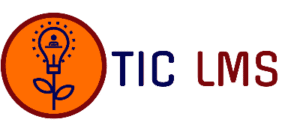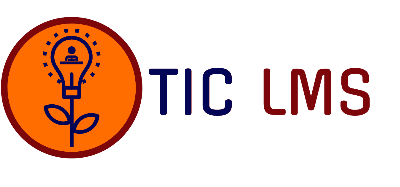2023 Government
- Which of the following is a fundamental principle of democratic governance?
- A. Centralized decision-making
- B. Censorship of the media
- C. Citizen Participation
- D. Authoritarianism
- Which of the following is not a source of public opinion?
- A. Opinion polls
- B. Academic Journals
- C. Social media
- D. political parties
- In a parliamentary system of government, the head of government is typically ___________.
- A. elected directly by the people
- B. the leader of the majority party in the legislature
- C. appointed by the judiciary
- D. chosen by the head of state
- The policy of ‘indigenization’ was introduced under the regime of?
- A. General Yakubu Gowon
- B. General Olusegun Obasanjo
- C. General Ibrahim Babangida
- D. General Sani Abacha
- Who is the current chairperson of ECOWAS?
- A. Bola Ahmed Tinubu
- B. Alassane Ouattara
- C. Macky Sall
- D. Nana-Akufo Ado
- The constitutional amendment process in Nigeria requires the approval of
- A. The Independent National Electoral Commission(INEC)
- B. The National Assembly
- C. The President
- D. The Supreme Court
- During the cold war, Nigeria’s foreign policy was characterized by
- A. alignment with the United States
- B. Neutrality and non-alignment
- C. Pursuit of colonial interest
- D. alignment with the Soviet Union
- Which of the following documents granted Nigeria its independence?
- A. The Lancaster House Agreement
- B. The Atlantic Charter
- C. The Nigerian Independence Act
- D. The United Nations Declaration on Decolonization
- Which of the following is a right associated with citizenship?
- A. Right to education
- B. Right to vote
- C. Right to privacy
- D. Right to property
- In a parliamentary system of government, the executive branch is
- A. under the control of the judiciary
- B. combined with the legislative branch
- C. elected through popular votes
- D. separate from the legislative branch
- What is the main source of funding for public corporations in Nigeria?
- A. Government budget allocations
- B. Foreign aid
- C. Revenues generated from their operations
- D. Donations from private companies
- Which of the following is a limitation of pressure groups?
- A. They only represent the interests of the wealthy.
- B. They have no influence on the government policies
- C. They may prioritize their own interests over the public interest
- D. They often resort to violent tactics
- Which of the following is a function of the Public Complaints Commission?
- A. Managing public transportation
- B. Enforcing criminal laws
- C. Conducting investigations and enquiries
- D. Implementing foreign policies
- What is the term for a system of government in which power is held by a small group of people?
- A. Oligarchy
- B. Monarchy
- C. Theocracy
- D. Democracy
- Which African country successfully resisted European imperialism and maintained its independence?
- A. Ghana
- B. Ethiopia
- C. Kenya
- D. Algeria
- Which of the following is a feature of Nigerian Federalism?
- A. Single-party system
- B. Centralized fiscal system
- C. Autonomy of local government
- D. Strong central government
- If the president refuses to sign a bill within a specific period, it can still become a law through
- A. legislative override
- B. none of the above
- C. judicial review
- D. public petition
- Which document serves as the constitution of the United Nations?
- A. Universal Declaration of Human Rights
- B. Geneva conventions
- C. Treaty of the Non-proliferation of Nuclear Weapons
- D. Charter of the United Nations
- Pressure groups primarily aim to
- A. promote social equality and justice
- B. gain political power and control
- C. influence public opinion through media campaigns
- D. disrupt the functioning of the government
- In which system of government is the executive and legislature fused?
- A. Cabinet
- B. Presidential
- C. Unitary
- D. Federal
- Which of the following African leaders played a significant role in the formation of NEPAD?
- A. Julius Nyerere
- B. Nelson Mandela
- C. Muammar Gaddafi
- D. Robert Mugabe
- Nigeria is a founding member of which regional organization?
- A. ECOWAS
- B. Non-aligned Movement
- C. OPEC
- D. IMF
- The current constitution of Nigeria is based on the model of which country?
- A. Germany
- B. United States
- C. France
- D. United Kingdom
- The arm of government responsible for budget approval and oversight is the
- A. judiciary
- B. executive
- C. administrative
- D. legislative
- A key principle of the socialist system of government is the ___________.
- A. minimal government intervention in the economy
- B. private ownership of the means of production
- C. power concentrated in the hands of a few elite individuals
- D. equality of opportunity and outcome
- In a communist system, who owns and controls the means of production?
- A. corporations
- B. The government
- C. private individuals
- D. non-profit organizations
- The National assembly is composed of how many chambers?
- A. Two
- B. Four
- C. One
- D. Three
- Which of the following was a significant trade commodity in the pre-colonial Kingdom of Benin?
- A. Ivory
- B. Gold
- C. Rubber
- D. Salt
- __________ was a major factor that contributed to the rise of the Sokoto Caliphate.
- A. Agricultural revolution.
- B. Slave trade
- C. European colonization
- D. Islamic Jihad
- Which political party was known for its socialist ideology and populist policies in the 1980s?
- A. People’s Redemption party
- B. All Nigeria’s People’s Party
- C. National Party of Nigeria
- D. Nigerian National Democratic Party
- In a parliamentary system, the head of government is usually the
- A. Chief Justice
- B. King or Queen
- C. President
- D. Prime minister
- A major event in Nigerian history that led to the suspension of Nigeria’s constitution and the declaration of a state of emergency by the colonial authorities in 1953 was the ________.
- A. Aba women’s riot
- B. Zikist movement
- C. Kano riots
- D. Action group crisis
- Which of the following countries operate a direct democracy?
- A. Russia
- B. United Kingdom
- C. United States of America
- D. Switzerland
- Which of the following is the basic unit of a local government in Nigeria?
- A. State assembly
- B. Ward
- C. Local Council Development Area(LCDA)
- D. Ministry of Local government
- The civil service in Nigeria operates under the principle of
- A. autonomy
- B. separation of powers
- C. none of the above
- D. meritocracy
- The Commonwealth of Nations was initially known as
- A. British Commonwealth
- B. Imperial Commonwealth
- C. Commonwealth Realm
- D. League of Nations
- Nigeria shares its longest border with which West African country?
- A. Niger
- B. Chad
- C. Ghana
- D. Benin
- The electoral system used in Nigeria is primarily based on __________
- A. mixed-member proportional
- B. preferential voting
- C. first-past-the-post
- D. proportional representation
- The process of selecting candidates to represent a political party in elections is known as
- A. campaigning
- B. primaries
- C. electioneering
- D. lobbying
- Which Nigerian leader advocated for the New Partnership for Africa’s Development(NEPAD)?
- A. Olusegun Obasanjo
- B. Yakubu Gowon
- C. Muhammadu Buhari
- D. Shehu Shagari
- Which African country experienced a violent resistance movement against British colonial rule known as the Mau Mau rebellion?
- A. Sudan
- B. Kenya
- C. Ghana
- D. Nigeria
- Public corporations and parastatals are typically established by
- A. private individuals
- B. legislative acts and statutes
- C. trade unions
- D. International organizations
- The Ijaw people of pre-colonial Nigeria were organized into?
- A. Grades
- B. Clans
- C. Federations
- D. Chiefdoms
- Civil servants are typically protected by
- A. Military forces and security agencies
- B. Civil service commission
- C. Trade union and labour laws
- D. Human rights organizations
- Judiciary checks the other arms of government through
- A. Judicial recall
- B. Judicial precedence
- C. Judicial review
- D. Judicial oversight
- What is the primary source of revenue for the local government in Nigeria?
- A. taxes
- B. grants from foreign countries
- C. oil revenue
- D. Federal government allocations
- Jus Sanguinis is a principle that grants citizenship based on
- A. parental citizenship
- B. place of birth
- C. ethnic background
- D. length of residency
- Which pre-colonial Nigerian Kingdom was known for its artistic and cultural achievement?
- A. Nupe
- B. Igbo
- C. Kanem-Bornu
- D. Benin
- Nigeria’s foreign policy is guided by the principle of
- A. military dominance
- B. economic self-sufficiency
- C. national interest
- D. territorial expansion
- The Nigerian constitution guarantees freedom of speech under which fundamental right?
- A. Right to freedom of thought
- B. Right to privacy
- C. Right to freedom of expression
- D. Right to life

